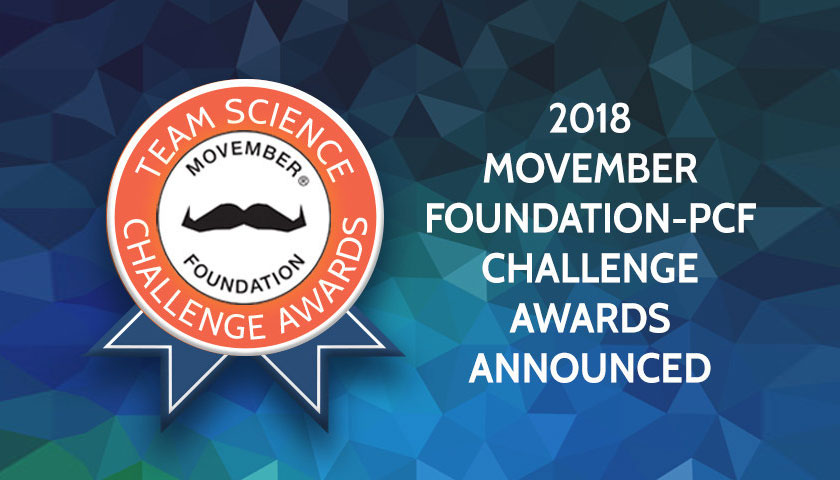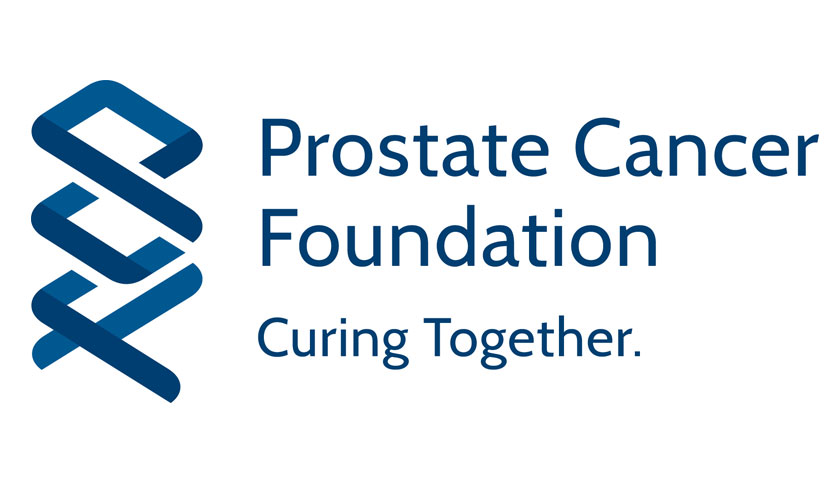The Prostate Cancer Foundation (PCF) and the Movember Foundation today announced four new Movember Foundation-PCF Challenge Award teams at some of the world’s leading academic research institutions will receive a total of $3.5 million to support cross-disciplinary pioneering research toward the goal of finding a cure for prostate cancer. Of these funds, $3 million came from the 2017 Movember U.S. Campaign, and $503,000 came from the 2017 Distinguished Gentleman’s Ride.
For more than a decade, the PCF and the Movember Foundation have partnered to defeat prostate cancer. To date, the Movember Foundation has contributed more than $50 million to the PCF to fund programs to advance top prostate cancer research priorities.
“The Prostate Cancer Foundation values its ongoing relationship with the Movember Foundation and is greatly appreciative of their generous donation. This year’s selection of Challenge Award recipients builds on our longstanding commitment of supporting innovative research that we hope will lead to life-saving therapies for men diagnosed with prostate cancer,” said Jonathan Simons, MD, president and chief executive officer, PCF.
“These recipients will advance prostate cancer research to new heights, and the Movember Foundation is honored to be a part of this initiative of supporting teams of scientists embarking on new breakthroughs that move the field toward the greatest unmet need – a cure for prostate cancer,” said Paul Villanti, Executive Director Programs for the Movember Foundation.
As part of the PCF’s commitment to accelerate research and innovation in prostate cancer, Challenge Award teams are required to include at least three investigators, one of whom must be a young investigator. Each proposal submitted to the PCF is subjected to a rigorous peer-review process that assesses the scientific merit of the project, as well as its potential impact on patients. Of note, three of this year’s winning research projects focus on US Veterans, and are also designated PCF VALOR Award recipients.
The following projects are the recipients of a 2018 PCF-Movember Foundation Challenge Award:
The Impact of DNA Damage Repair Abnormalities in Prostate Cancer ($1 Million Challenge Award)
- Principal Investigators: Mark Pomerantz, MD (Harvard: Dana-Farber Cancer Institute), Philip Kantoff, MD (Memorial Sloan Kettering Cancer Center)
- Focus: Determine the prevalence and prognostic significance of inherited DNA damage repair gene defects and optimal risk-tailored management strategies in men with high-risk localized prostate cancer.
Fecal Microbiota Transplant to Enhance Response to PD-1 Inhibition in Metastatic Castration Resistant Prostate Cancer ($1 Million Challenge Award; VALOR Award)
- Principal Investigators: Julie Graff, MD (VA Portland Health Care System, Oregon Health & Science University), Amy Moran, PhD (Oregon Health & Science University), Karen Sfanos, PhD (Johns Hopkins University)
- Focus: Determine whether fecal microbiota transplantation from patients who previously responded to immune checkpoint inhibitors can improve immunotherapy responses in men with advanced prostate cancer.
Surrogate Endpoints of Overall Survival in Men with Metastatic Hormone Sensitive Prostate Cancer ($500,000 Challenge Award; VALOR Award)
- Principal Investigators: Susan Halabi, PhD (Duke University); Christopher Sweeney, MBBS (Harvard: Dana-Farber Cancer Institute), Jayne Tierney, PhD (University College London)
- Focus: Identify intermediate clinical endpoints that reliably predict overall survival in men with metastatic hormone sensitive prostate cancer, which can be used to speed clinical trials.
Targeting RNA Splicing in Race-Related Aggressive and Lethal Prostate Cancer ($1 Million Challenge Award; VALOR Award)
- Principal Investigators: Steven Patierno, PhD, Daniel George, MD, Jennifer Freedman, PhD, Jiaoti Huang, MD, PhD, Amanda Hargrove, PhD, Muthana Al Abo, MD, PhD (all of Duke University)
- Focus: Investigate the role of altered RNA splicing in aggressive prostate cancer in African American vs. Caucasian patients, and develop novel treatments to target these genes.



